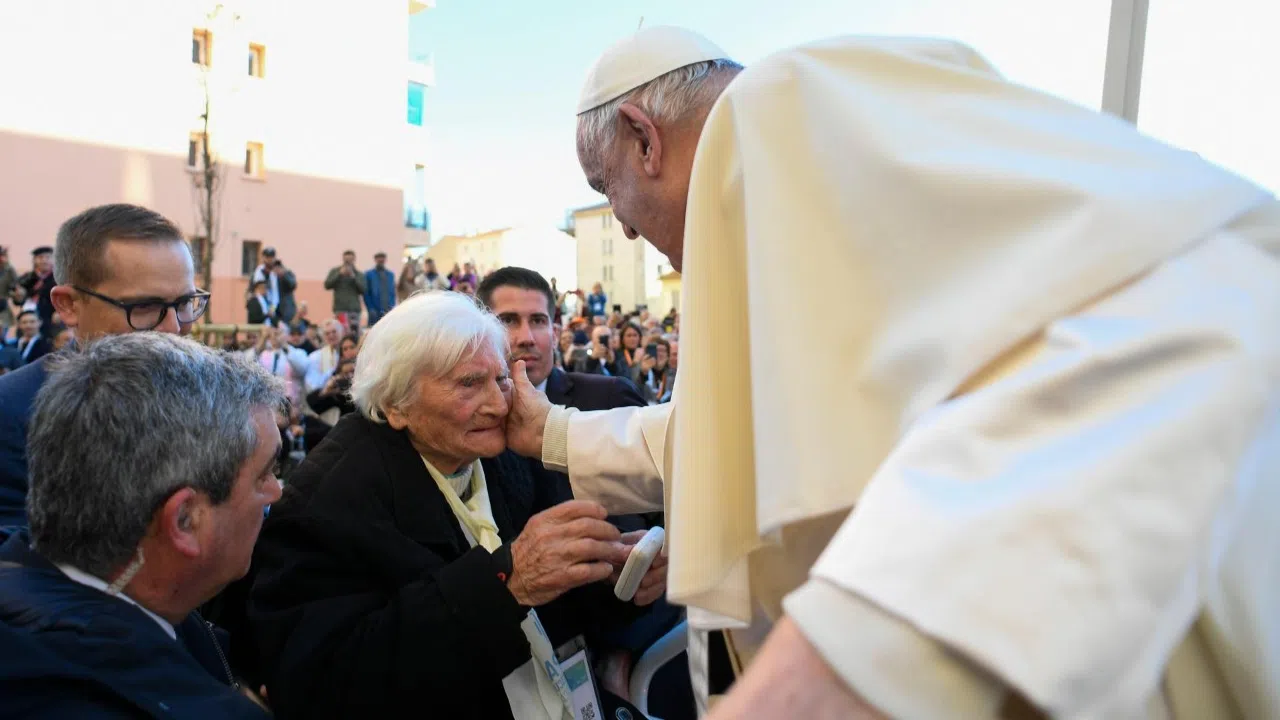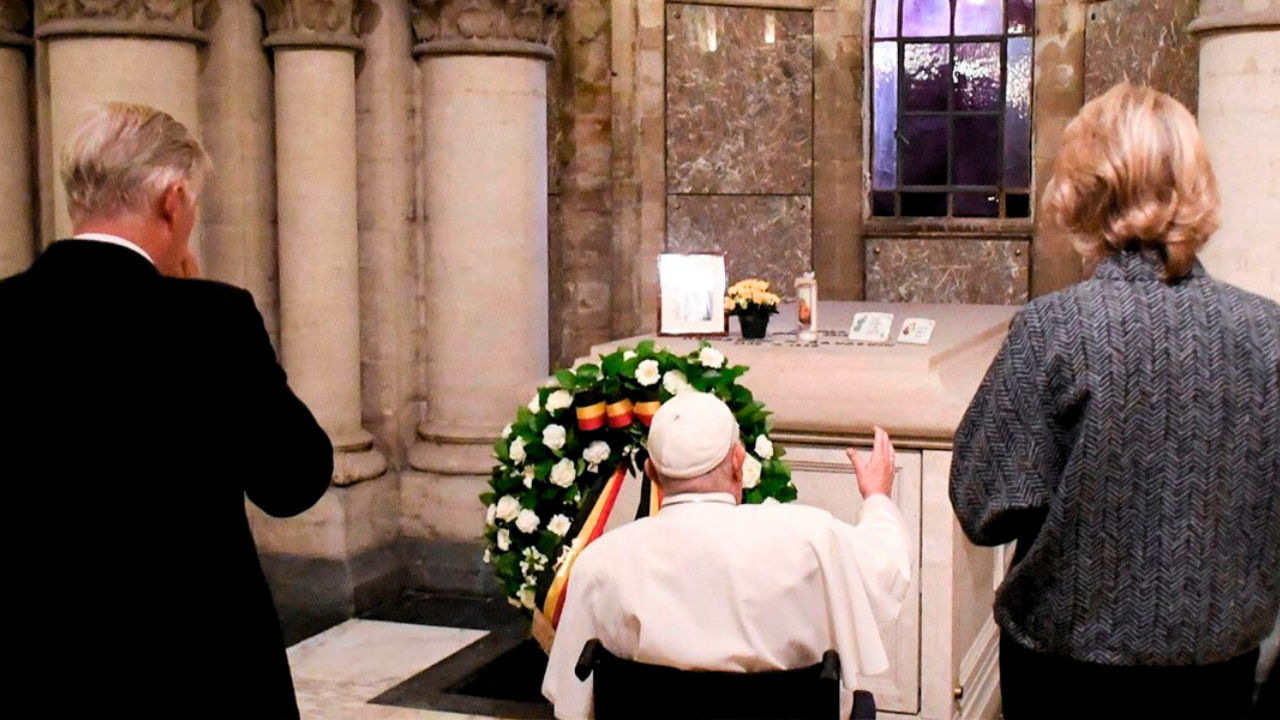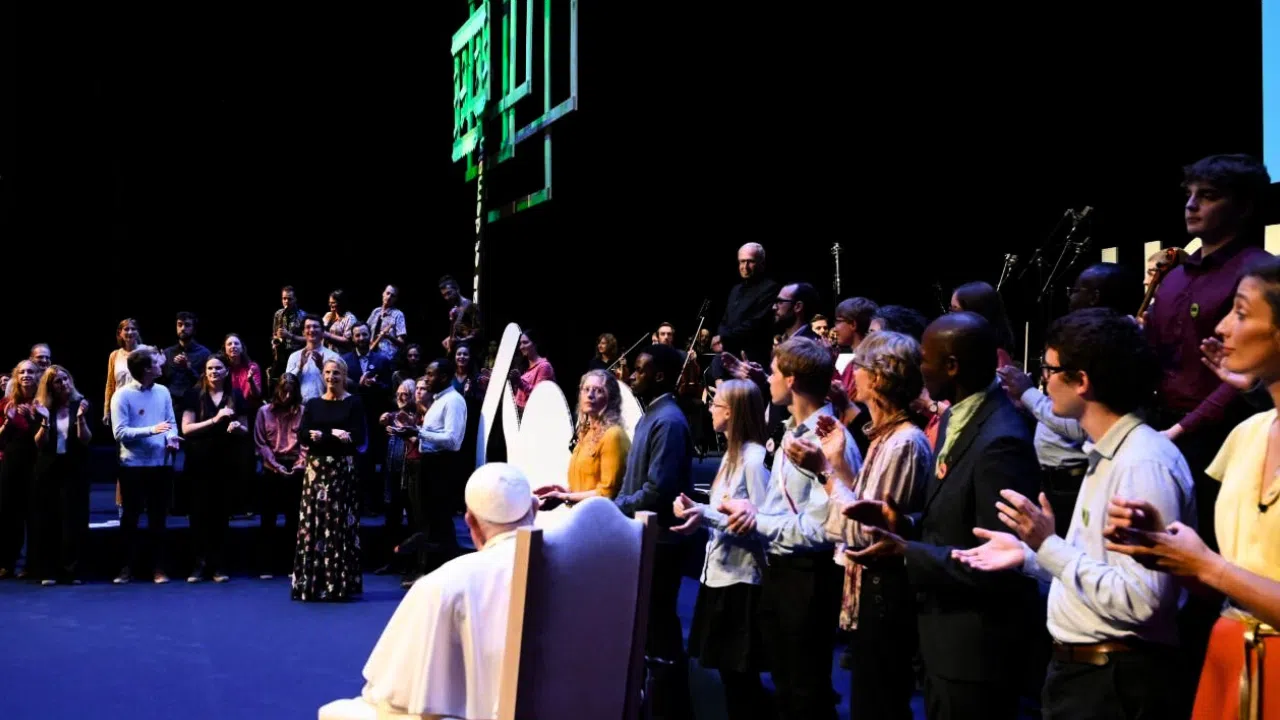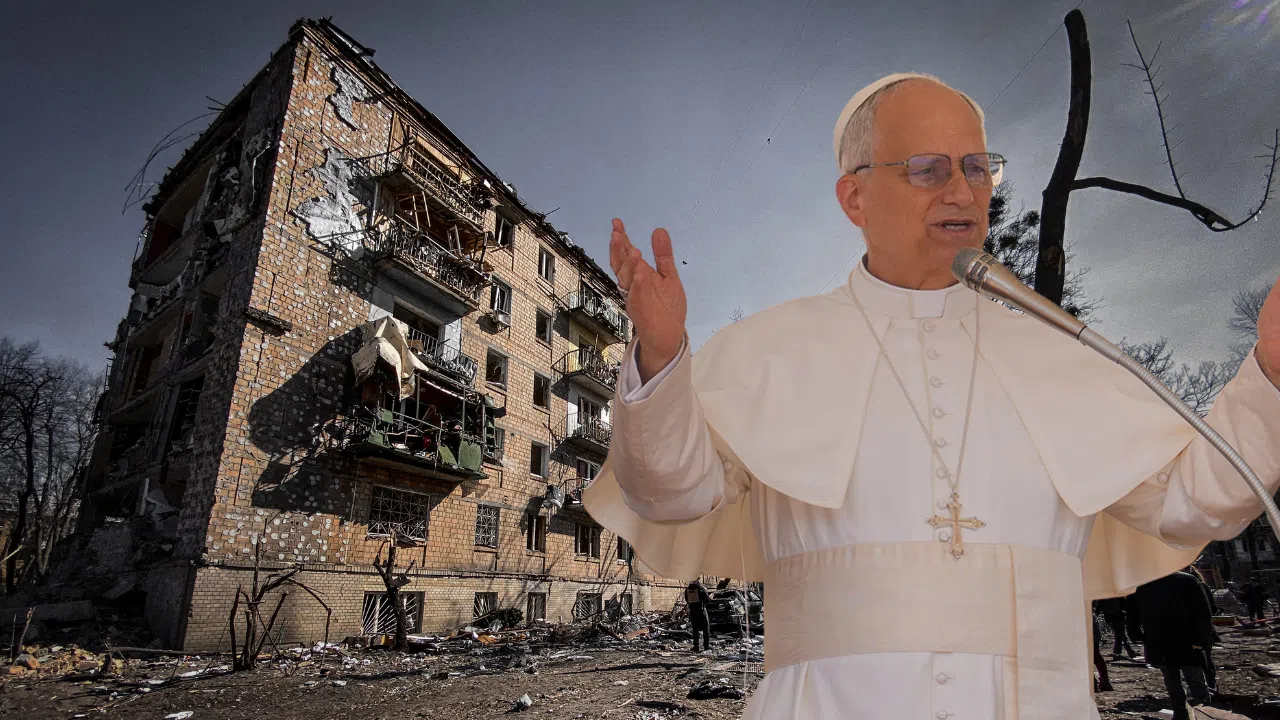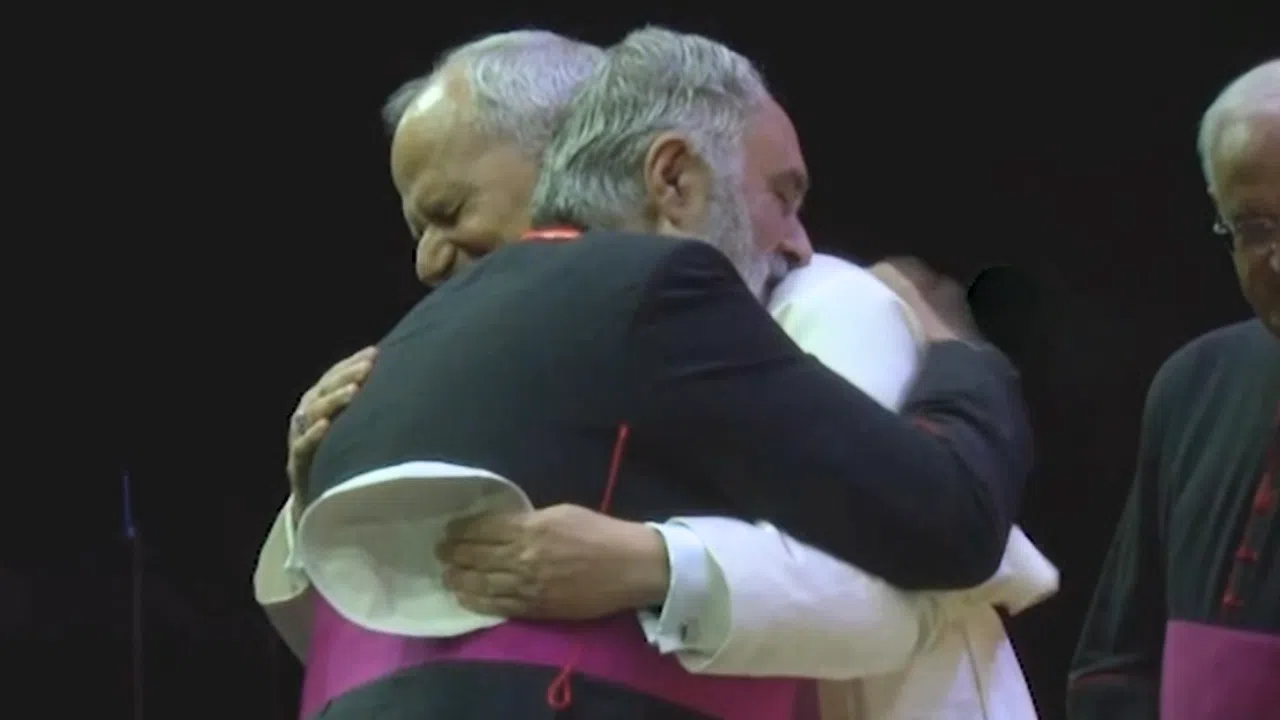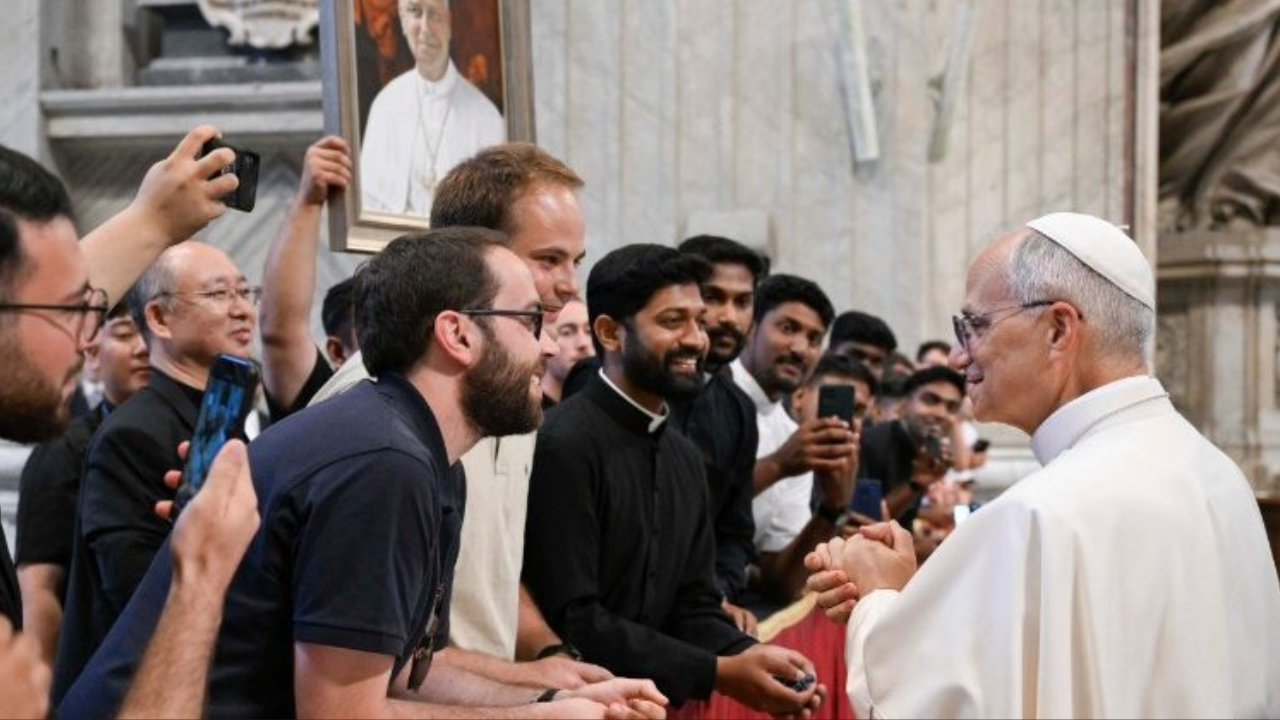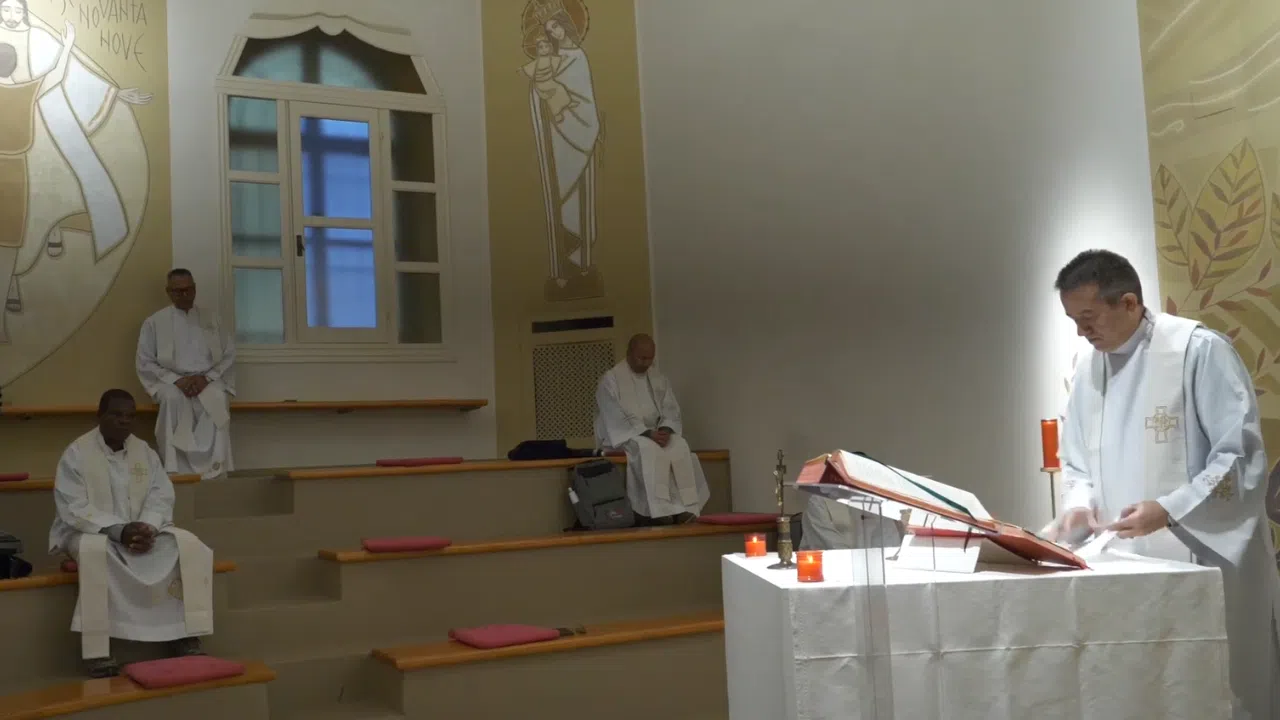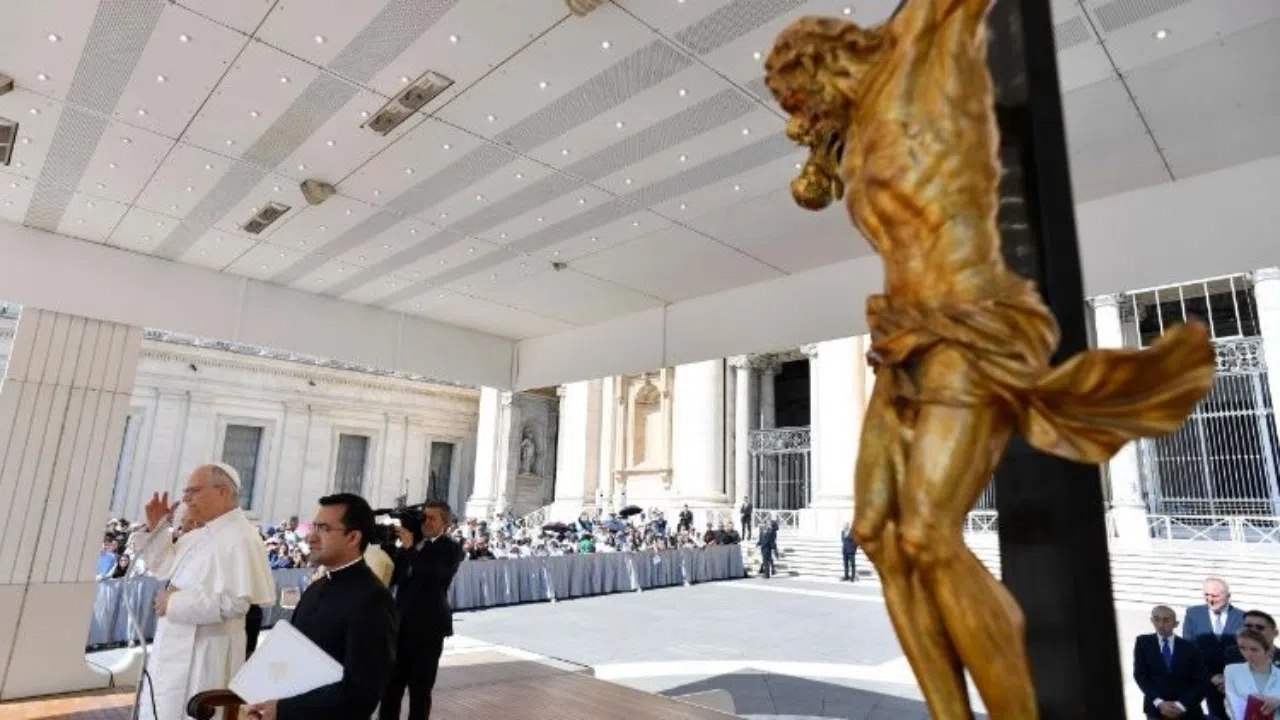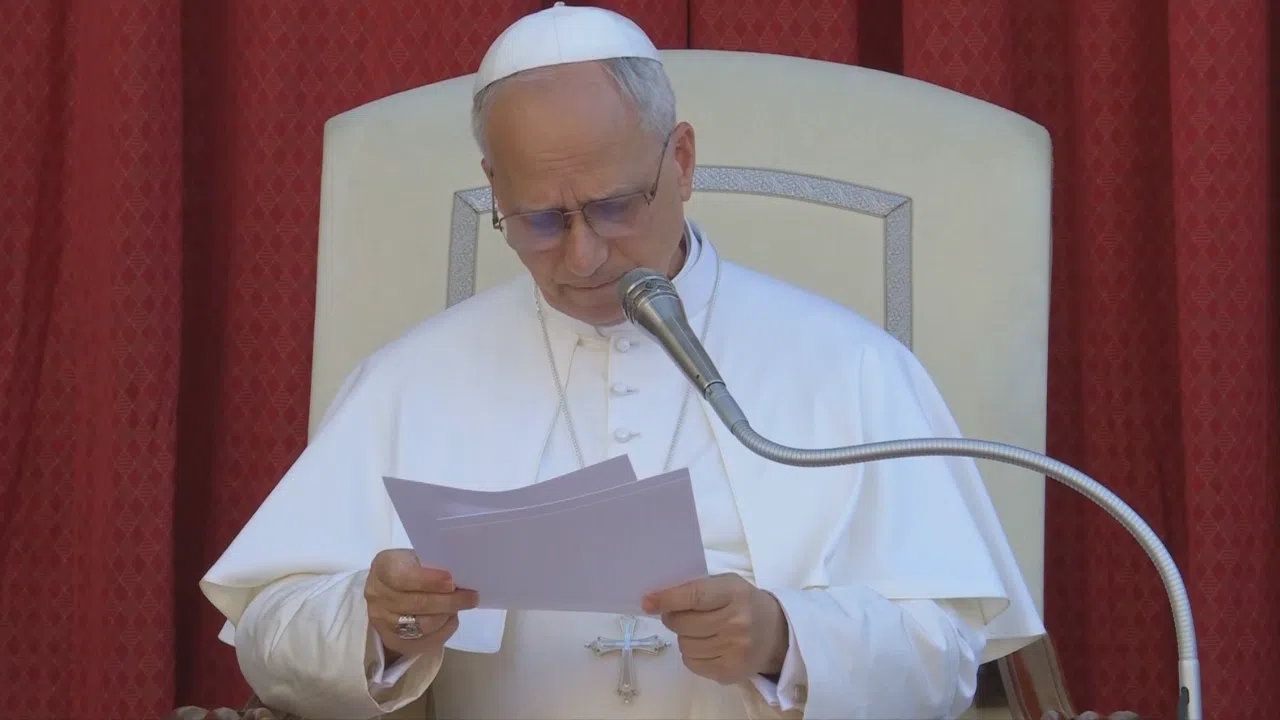Read the whole speech below.
Dear Brothers and Sisters,
I am pleased to be able to meet you and to share the joy which fills the heart and the entire life of the missionary disciples of Jesus. This joy was expressed in the words of welcome offered by Bishop Roberto Bordi, and by the testimonies of Father Miguel, Sister Gabriela, and by Damián, our seminarian. I thank each of you for sharing your own experience of vocation.
In the Gospel of Mark we also heard the experience of Bartimaeus, who joined the group of Jesusâ?? followers. He became a disciple at the last minute. This happened during the Lordâ??s final journey, from Jericho to Jerusalem, where he was about to be handed over. A blind beggar, Bartimaeus sat on the roadside, pushed aside. When he heard Jesus passing by, he began to cry out.
Walking with Jesus were his apostles, the disciples and the women who were his followers. They were at his side as he journeyed through Palestine, proclaiming the Kingdom of God. There was also a great crowd.
Two things about this story jump out at us and make an impression. On the one hand, there is the cry of a beggar, and on the other, the different reactions of the disciples. It is as if the Evangelist wanted to show us the effect which Bartimaeusâ?? cry had on peopleâ??s lives, on the lives of Jesusâ?? followers. How did they react when faced with the suffering of that man on the side of the road, wallowing in his misery.
There were three responses to the cry of the blind man. We can describe them with three phrases taken from the Gospel: They passed by, they told him to be quiet, and they told him to take heart and get up.
1. They passed by. Perhaps some of those who passed by did not even hear his shouting. Passing by is the response of indifference, of avoiding other peopleâ??s problems because they do not affect us. We do not hear them, we do not recognize them. Here we have the temptation to see suffering as something natural, to take injustice for granted. We say to ourselves, 'This is nothing unusual; this is the way things areâ?. It is the response born of a blind, closed heart, a heart which has lost the ability to be touched and hence the possibility to change. A heart used to passing by without letting itself be touched; a life which passes from one thing to the next, without ever sinking roots in the lives of the people around us.
We could call this 'the spirituality of zappingâ?. It is always on the move, but it has nothing to show for it. There are people who keep up with the latest news, the most recent best sellers, but they never manage to connect with others, to strike up a relationship, to get involved.
You may say to me, 'But Father, those people in the Gospel were busy listening to the words of the Master. They were intent on him.â? I think that this is one of the most challenging things about Christian spirituality. The Evangelist John tells us, 'How can you love God, whom you do not see, if you do not love your brother whom you do see?â? (1 Jn 4:20). One of the great temptations we encounter along the way is to separate these two things, which belong together. We need to be aware of this. The way we listen to God the Father is how we should listen to his faithful people.
To pass by, without hearing the pain of our people, without sinking roots in their lives and in their world, is like listening to the word of God without letting it take root and bear fruit in our hearts. Like a tree, a life without roots is a one which withers and dies.
2. They told him to be quiet. This is the second response to Bartimaeusâ?? cry: keep quiet, donâ??t bother us, leave us alone. Unlike the first response, this one hears, acknowledges, and makes contact with the cry of another person. It recognizes that he or she is there, but reacts simply by scolding. It is the attitude of some leaders of Godâ??s people; they continually scold others, hurl reproaches at them, tell them to be quiet.
This is the drama of the isolated consciousness, of those who think that the life of Jesus is only for those deserve it. They seem to believe there is only room for the 'worthyâ?, for the 'better peopleâ?, and little by little they separate themselves from the others. They have made their identity a badge of superiority.
They hear, but they donâ??t listen. The need to show that they are different has closed their heart. Their need to tell themselves, 'I am not like that person, like those peopleâ?, not only cuts them off from the cry of their people, from their tears, but most of all from their reasons for rejoicing. Laughing with those who laugh, weeping with those who weep; all this is part of the mystery of a priestly heart.
3. They told him to take heart and get up. Lastly, we come upon the third response. It is not so much a direct response to the cry of Bartimaeus as an echo, or a reflection, of the way Jesus himself responded to the pleading of the blind beggar. In those who told him to take heart and get up, the beggarâ??s cry issued in a word, an invitation, a new and changed way of responding to Godâ??s holy People.
Unlike those who simply passed by, the Gospel says that Jesus stopped and asked what was happening. He stopped when someone cried out to him. Jesus singled him out from the nameless crowd and got involved in his life. And far from ordering him to keep quiet, he asked him, 'What do you want me to do for you?â? He didnâ??t have to show that he was different, somehow apart; he didnâ??t decide whether Bartimaeus was worthy or not before speaking to him. He simply asked him a question, looked at him and sought to come into his life, to share his lot. And by doing this he gradually restored the manâ??s lost dignity; he included him. Far from looking down on him, Jesus was moved to identify with the manâ??s problems and thus to show the transforming power of mercy. There can be no compassion without stopping, hearing and showing solidarity with the other. Compassion is not about zapping, it is not about silencing pain, it is about the logic of love. A logic, a way of thinking and feeling, which is not grounded in fear but in the freedom born of love and of desire to put the good of others before all else. A logic born of not being afraid to draw near to the pain of our people. Even if often this means no more than standing at their side and praying with them.
This is the logic of discipleship, it is what the Holy Spirit does with us and in us. We are witnesses of this. One day Jesus saw us on the side of the road, wallowing in our own pain and misery. He did not close his ear to our cries. He stopped, drew near and asked what he could do for us. And thanks to many witnesses, who told us, 'Take heart; get upâ?, gradually we experienced this merciful love, this transforming love, which enabled us to see the light. We are witnesses not of an ideology, of a recipe, of a particular theology. We are witnesses to the healing and merciful love of Jesus. We are witnesses of his working in the lives of our communities.
This is the pedagogy of the Master, this is the pedagogy which God uses with his people. It leads us to passing from distracted zapping to the point where we can say to others: 'Take heart; get up. The Master is calling youâ? (Mk 10:49). Not so that we can be special, not so that we can be better than others, not so that we can be Godâ??s functionaries, but only because we are grateful witnesses to the mercy which changed us.
On this journey we are not alone. We help one another by our example and by our prayers. We are surrounded by a cloud of witnesses (cf. Heb 12:1). Let us think of Blessed Nazaria Ignacia de Santa Teresa de Jesús, who dedicated her life to the proclamation of Godâ??s Kingdom through her care for the aged, her 'kettle of the poorâ? for the hungry, her homes for orphaned children, her hospitals for wounded soldiers and her creation of a womenâ??s trade union to promote the welfare of women. Let us also think of Venerable Virginia Blanco Tardío, who was completely dedicated to the evangelization and care of the poor and the sick. These women, and so many other persons like them, are an encouragement to us along our way. May we press forward with the help and cooperation of all. For the Lord wants to use us to make his light reach to every corner of our world.
I ask you please to pray for me, and I bless all of you from my heart.
Up; JPB





